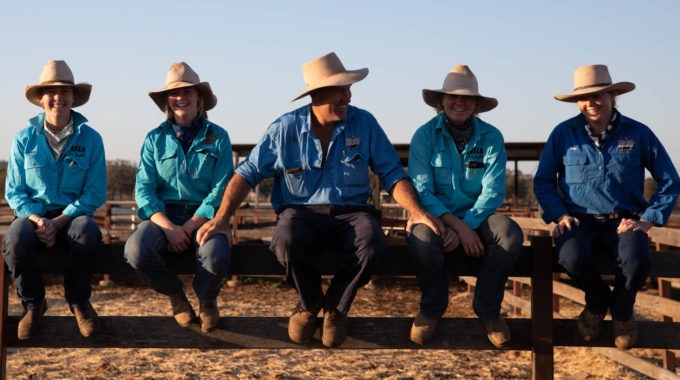Four Daughters: Aussie beef with a story
Western Queensland beef producers Dan and Karen Penfold have been successfully feedlotting cattle for 25 years, supplying quality beef to supermarkets across Queensland. But just like any farming family, they also wanted to provide a secure future for their children. With this in mind, and after a chance meeting with a Chinese meat importer, the couple decided to establish a premium beef export business as a way to ensure a strong succession plan for their four daughters – Bonnie, Molly, Jemima and Matilda.
The creation of the family’s new brand – aptly named “Four Daughters” – all began when Dan attended a Beef Australia event in Rockhampton in 2018.
“At the end of the day he was at the bar and wanted to sit down,” Karen says. “He saw a spare seat next to two Chinese people, so he decided to ask if he could sit with them.”
It turned out to be a serendipitous decision. The pair that Dan chose to sit with were Nisha Wang and Frank Zhang from ANZJOY International, a distributor of Australian beef from Wuhan, China. The three started talking shop, and Wang and Zhang were quickly intrigued by the Penfolds’ enterprise. In particular, they were fascinated by the Penfolds’ four red-headed daughters, who have all worked the land from childhood. They had been looking for clean, green Aussie beef, but they also wanted “a brand with a story”.
“They asked if they could come to visit us,” Karen says. “So Dan gave them a map and an address and they turned up at our place two days later.”
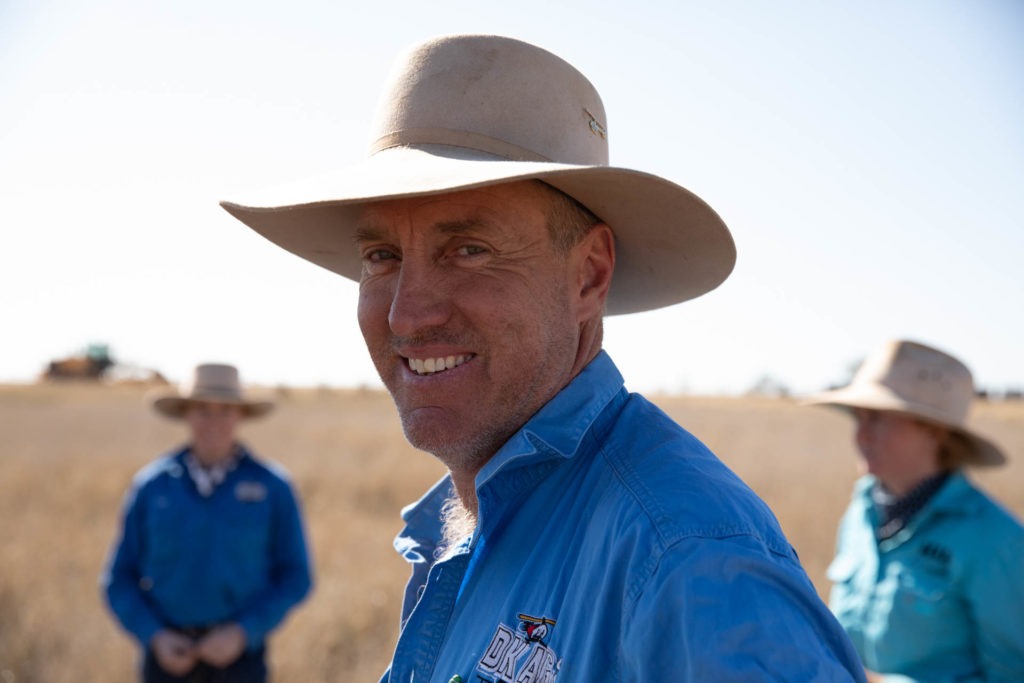
From chance to calamity
Over the next 12 months, Karen and Dan began building a relationship with their new Chinese friends, who came to visit the Penfolds several more times to learn about the production of Australian beef. After a long process that involved everything from working with a brand consultant to finding an export-accredited abattoir, the family began exporting 150-day grain-fed premium Black Angus beef directly to Wuhan under the Four Daughters brand in 2019. Starting with just 54 head, the family’s exports soon increased to 150 head, with plans to increase even further. But then COVID-19 hit.
“We probably knew about coronavirus before anyone, because we were always communicating with them, and they told us there was a virus there,” Karen says.
Several shipments of Four Daughters beef were left sitting in limbo in Wuhan while the city was in lockdown. Then China suspended imports from Australian abattoirs, including the Penfolds’ meat processor in Casino, NSW. But rather than be defeated, the family pivoted its business model and began selling Four Daughters paddock-to-plate “pink boxes” of premium Black Angus beef domestically to Queensland consumers.
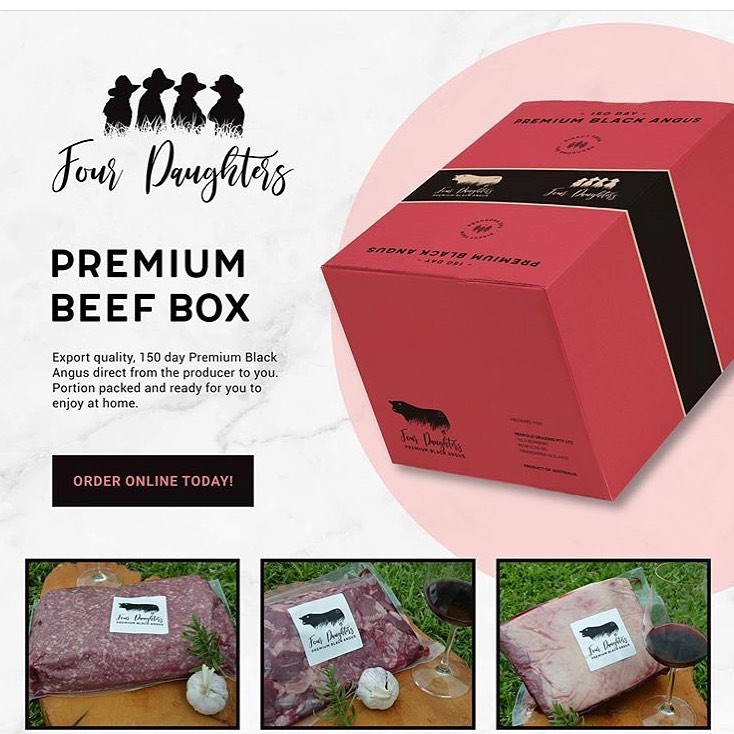
“We had to work out what to do with these whole animals, which were supposed to go to China,” Karen says. “How could we use all the cuts so we could remain sustainable?”
While not as lucrative as exporting beef to China, the family has continued to build the domestic Four Daughters offering, and hopes to extend delivery to Sydney and Canberra.
“The amount of work and time it takes for the small number of head we’re now doing, you question whether it’s worth it sometimes,” Karen admits. “We’re still selling our beef into Woolies, which is our bread and butter, but we’re keen to build the Four Daughters brand.
“But we know why we’re doing it. We’re doing it because we’ve got four girls and they all want to remain here on the land.”
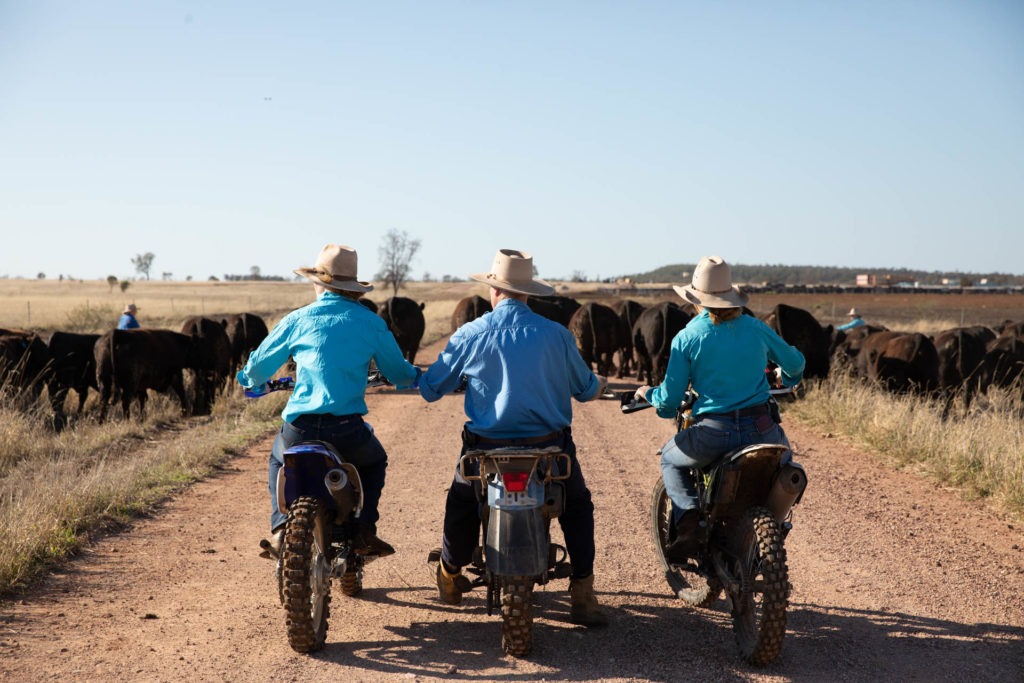
Connection to country
The Penfolds have even managed to find a silver lining in all of this, with the local appeal of Four Daughters helping to build greater connections between city and country.
“It’s something we’ve lost over time,” Karen says. “If nothing more, people are now more aware of food production and what it takes. It shows people we really do need farmers.”
The family now keep followers updated via their Facebook page, and the girls also share stories via regular newsletters, which Karen says explains “why they do what they do”.
“We’re keen to build these connections,” she says. “Even if people don’t buy our beef, we want them to just get online and follow our stories. The best part of COVID is that we all got a little bit of reality back into our world – that the first things we need are food and water. And what we do is provide food, working 365 days a year.”
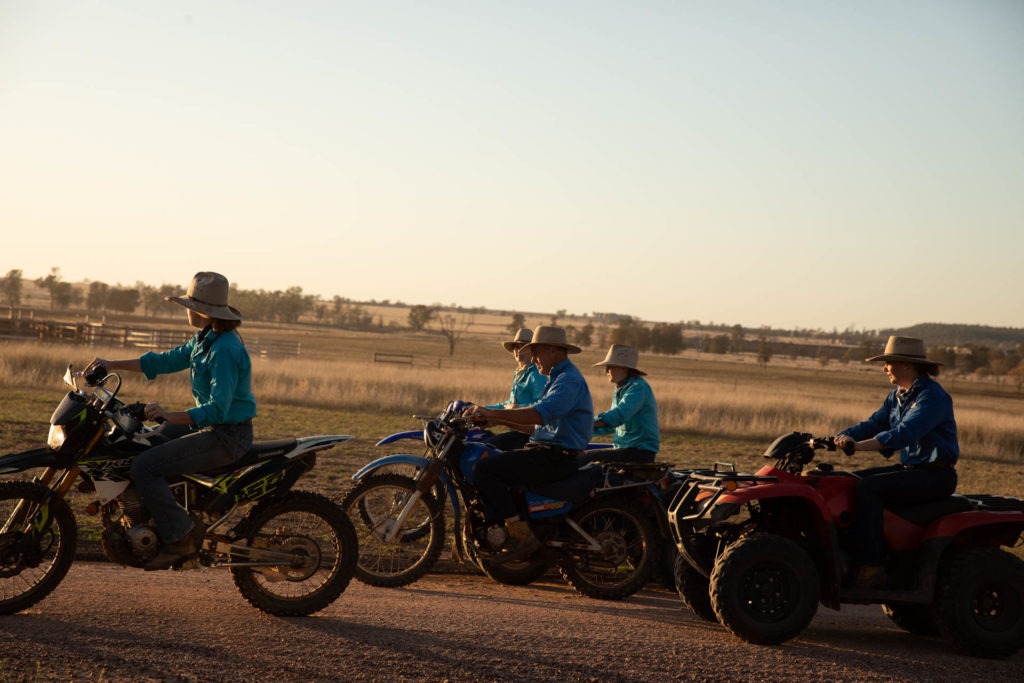
Loving the land
The four girls are all passionate about working for the family business, but Karen and Dan also wanted to ensure their daughters were aware of other opportunities. All four were sent to boarding school in Brisbane, and have been encouraged to pursue further education.
“We’ve always been insistent that they have another string to their bow,” Karen says.
Bonnie (23) has finished studying primary teaching and now works several days a week at local schools. Molly (21) is studying accounting, and next year will work for another business to put her practical knowledge to use before returning home to the family business.
Jemima (19) has been further up north, working on another property to gain experience, and then plans to study agribusiness. Matilda (17) is keen on flying and machinery, and so plans to study aircraft maintenance and get her pilot’s licence after finishing high school.
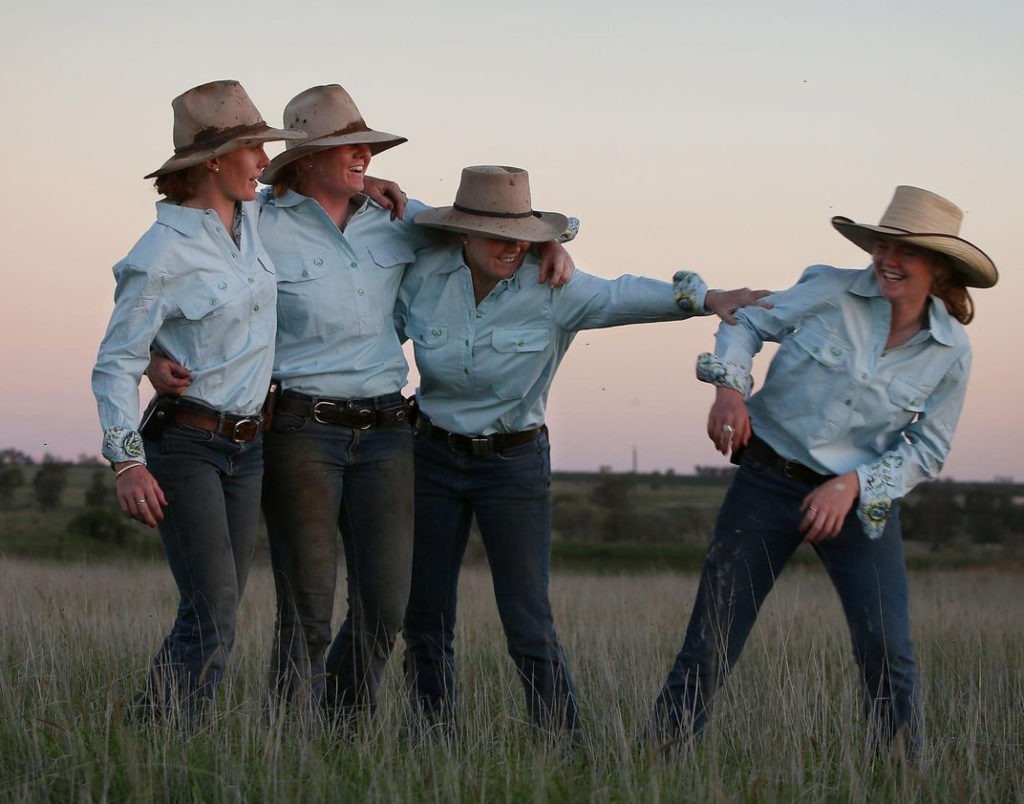
Never say die
Nothing has dampened the Penfold girls’ enthusiasm for working on the land – not drought, not bushfires and certainly not a global pandemic.
“We sent them to a co-ed multicultural boarding school in Brisbane consciously, so that they could see there’s a whole lot more to the world,” Karen says. “But all it’s done is make them head back to the bush quicker than ever!”
Karen says all four girls “work their butts off” when they’re at home, and do everything from feeding cattle and changing giant tractor tyres to fixing machinery
“Gender isn’t an issue when it comes to farm work,” she says. “Sure, they’re bloody strong females. But so much is machine-based these days. They can drive everything, and their father taught them to fix everything.
“They’ve never been told they can’t do anything. We’ve always said you can do anything you set your mind to, you’ve just got to work out how you’re going to do it.”
Right now, the Penfolds are looking into other potential export markets in countries such as the United Arab Emirates, Singapore, Hong Kong and Vietnam, as well as continuing to build their domestic Four Daughters brand.
“Finding another market has definitely been a challenge,” Karen says. “As for China, the market is still there. We’ll just have to wait and see. So much of it is just out of our control at the moment. But we haven’t quit yet, and we don’t plan to. Anything is possible.”
You can find out more about Four Daughters premium beef, and order your pink box, at fourdaughters.com.au


